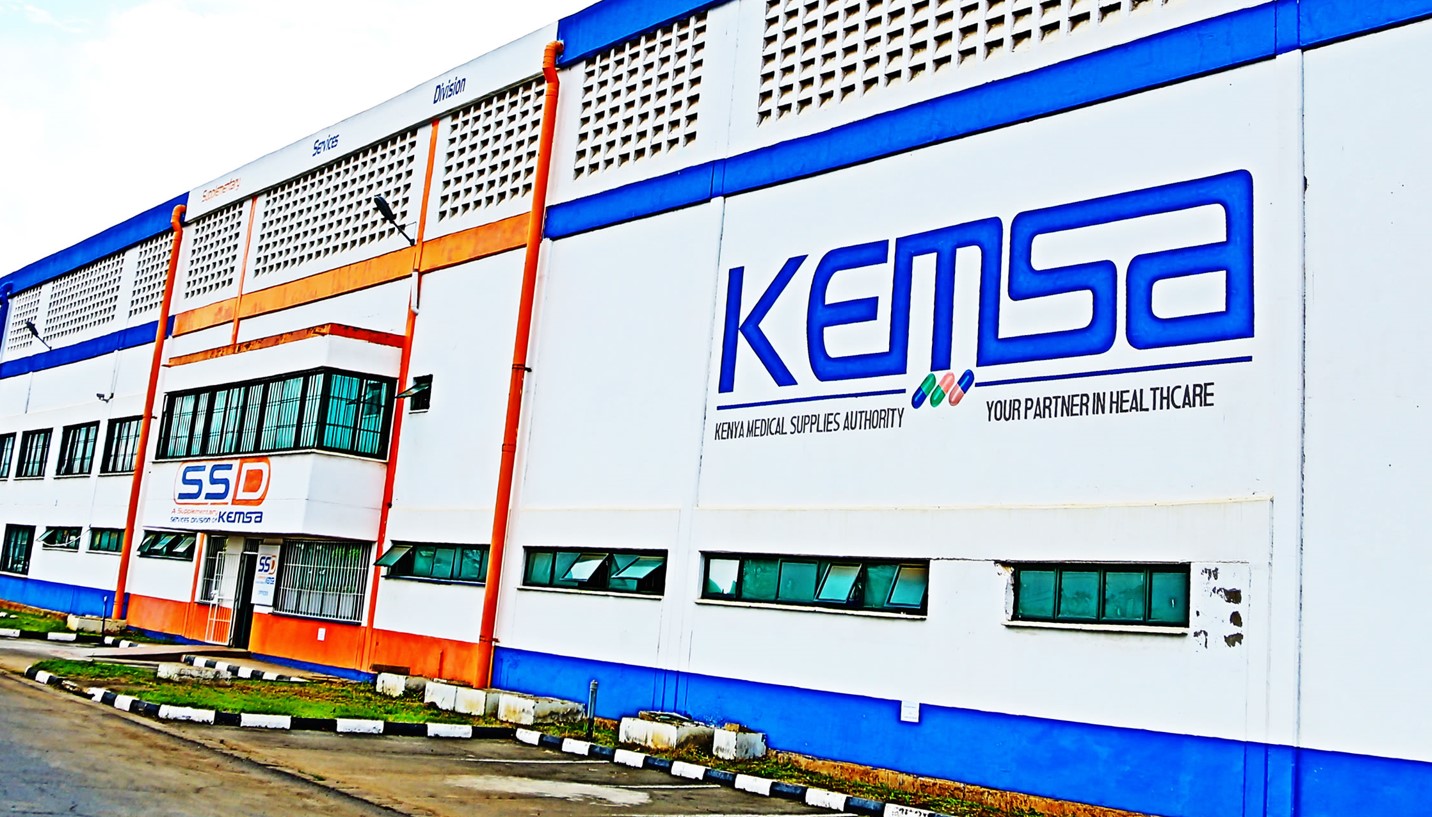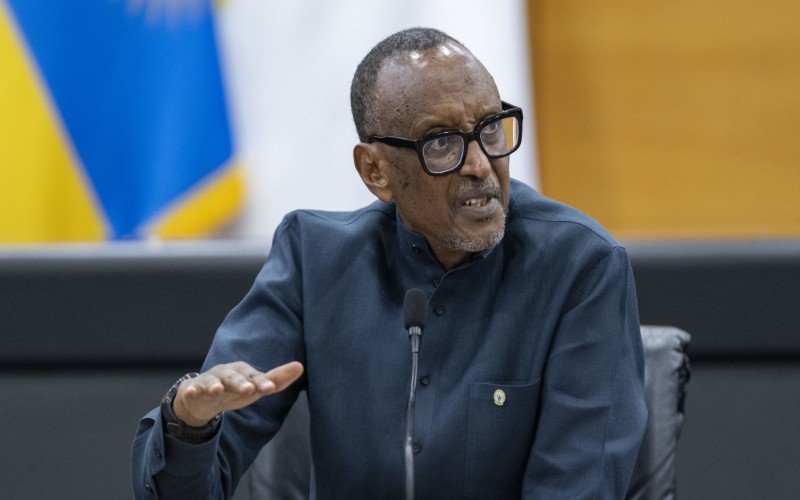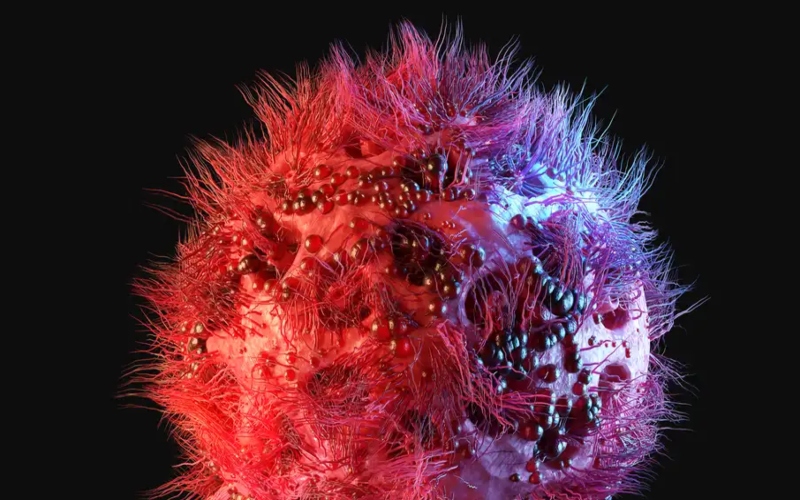KEMSA refutes claims of financial mismanagement cited in audit report

The Authority refuted claims that it distributed supplies worth Sh572 million to non-existent health facilities.
The Kenya Medical Supplies Authority (KEMSA) has refuted reports made by the Office of the Auditor General that it lost billions of shillings during the financial year ending June 30, 2023.
While defending itself KEMSA termed the allegations as “inaccurate, non-factual, and misleading,” expressing regret that the report highlighted irregularities which were a misrepresentation of their activities during the period in question.
More To Read
- Auditor General calls for penalties on officers who ignore audit recommendations
- Auditor General Nancy Gathungu warns of pension losses as government delays remittances
- Revenue gaps, budget misalignments hurting service delivery, warns Auditor General
- Governance Committee orders mandatory audit attendance for university heads
- Ruto targets faster healthcare access with KEMSA direct medicine deliveries to hospitals
- Senate flags 24 State agencies still performing county functions
One of the primary issues KEMSA addressed was the claim that Sh9 billion worth of cancer drugs were improperly distributed to a private hospital.
The agency clarified that Nairobi Hospital has been part of a long-standing partnership with the Government of Kenya and the MAX Foundation. According to the Authority, this collaboration, which began in 2003, facilitates the distribution of free anticancer drugs to patients through specialised facilities.
“In 2003, MAX Foundation entered an MOU with the Government of Kenya on the treatment of chronic myeloid leukaemia using Glivec. This treatment is administered in highly specialised facilities that can offer routine care to patients. The partnership includes doctors and Nairobi Hospital management to ensure that patients with chronic myeloid leukaemia (CML) and gastrointestinal tumours receive the anticancer drug free of charge for over 20 years,” KEMSA said in a statement.
The agency further explained that in 2021, the programme was decentralised to four public hospitals including Moi Teaching and Referral Hospital (Eldoret), Coast General Hospital (Mombasa), Nakuru Provincial Hospital (Nakuru), and Jaramogi Oginga Odinga Hospital (Kisumu).
However, the Authority said the majority of patients chose to continue receiving treatment at Nairobi Hospital, with others transferring to the public facilities.
“The Ministry of Health, through the National Cancer Programme, identified these cancer centres as the most appropriate due to the availability of necessary human resources, systems, and regional distribution, allowing patients to receive services closer to home and avoid long travels. Nonetheless, most patients opted to stay at Nairobi Hospital, while others have transitioned to the public centres,” KEMSA said.
Non-existent health facilities
The Authority also refuted claims that it distributed supplies worth Sh572 million to non-existent health facilities.
The agency clarified that the centralised stores mentioned in the report were established as delivery points for distributing healthcare products to counties during the COVID-19 pandemic. It added that the procurement and distribution process was done as per the distribution lists provided by the respective programmes.
“The 23 counties and 275 sub-counties mentioned have centralised stores where KEMSA delivered programme-donated healthcare products as specified in the distribution lists. Many of these stores were established during COVID-19 when counties sought to centralise storage,” reads the statement.
KEMSA was also accused of distributing health products without conducting proper testing. In response, the Authority clarified that all products undergo sampling and testing in accordance with the Quality Assurance sampling procedure.
It noted that the specific type of testing varies based on the product; some require chemical and physical analysis, while others are inspected visually.
“The Authority has an ISO-certified laboratory and also partners with other agencies like NCQL to undertake further product quality tests,” the Authority said.
Billing issues
Regarding allegations of billing issues, KEMSA said all antiretroviral drugs (ARVs) are distributed free of charge, and funded by development partners such as the Global Fund and USAID. Therefore, it said, reports suggesting that the supplies were billed to counties and the Ministry of Health are false.
Additionally, KEMSA acknowledged a Sh168 million loss related to procurement changes made by the Global Fund, which contracted Wambo.org, an international supplies agency, to provide Kenya with Long-Lasting Insecticidal Treated Nets (LLITNs) for mass distribution.
Despite this, KEMSA said it continues to manage warehousing and distribution, earning fees for these services.
The report further highlighted issues related to excess purchases and reforms of Sh3.5 billion. KEMSA acknowledged that changes in demand and supplier delivery delays could result in stock imbalances.
“However, changes in demand may arise due to various factors leading to either over or under-stocking of a certain commodity. Delays in delivery of goods from various suppliers do affect the stock levels at any given time,” the Authority said.
KEMSA also responded to concerns about the lack of progress in reforms despite a Sh300 million budget. They confirmed that the allocated funds for reforms were utilised to develop an Enterprise Resource Planning (ERP) system, which is expected to be fully operational by December 2024 to enhance visibility throughout the supply chain.
“KEMSA is an agent of the Ministry of Health tasked with procuring, warehousing, and distributing healthcare products and technologies (HPTs). Partnership agreements are entered into with the Government of Kenya through the Ministry of Health. The Authority is well-positioned to optimally achieve its mandate of procuring, warehousing, and distributing drugs and medical supplies for prescribed public health programmes,” KEMSA said.
Top Stories Today












































